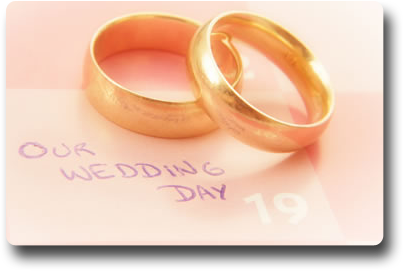 As a wedding planner with years of experience in the events industry, I can honestly say that my first few months in the business challenged my ideas of what a wedding planner really is.
As a wedding planner with years of experience in the events industry, I can honestly say that my first few months in the business challenged my ideas of what a wedding planner really is.
The daily stresses and personalities that came with the career were almost too much to handle at first. Many people see the wedding planning career as a romantic and filled with extravagant parties, unlimited budgets, and clients who nod to your every word. This is often the exception, not the norm.
In this article, I’d like to explain everything that a wedding planner career is and just as importantly, everything it isn’t. I still wouldn’t trade my job for any other, but it does come with its fair share of challenges.
Passion and Commitment
One of the biggest differences between a standard job and a career as a wedding planner is the time commitment. If you want to thrive as a planner (both financially and professionally), you have to make yourself available before and after the normal 9-5 work day. Some clients will call you at 9PM and expect an immediate answer to their burning questions, and if you are new to the business and trying to earn a good reputation, you will need to take that phone call with a smile. And before you say to yourself, “No, not me; I’ll set boundaries from the start,” just remember that frantic brides won’t always respect those boundaries and an unresponsive wedding planner can turn into a very disappointed client, whether it was your fault or not.
My best advice is this: if you have a passion for being a wedding planner, learn to love the calls and the unscheduled consultations. If you are not passionate and learn to roll with the punches, the punches will eventually knock you out and you’ll begin to look for new employment.
Honesty and Integrity
As a wedding planner, most of my day consists of interacting with clients, the clients’ family and friends, and vendors. Given that I’m interacting with dozens of people for the same event, I may answer the same question ten different times one day. Or I may be asked the dreaded “Does this dress make me look fat?” You have to be able to answer those questions in a way that is honest but also appropriate to the person you’re speaking to. Blurting out “Yes, that dress does make your hips look a bit wide” is not what any client wants to hear, especially from someone they have hired. Instead, you can try “I do like that dress, but I think this dress may match your personality more and fit better with your body type.”
Inevitably, some vendors will want to pay you a commission for promoting their services above others. In these situations, remember that you are working for your client, so you must ensure that the vendor you are recommending lines up with your client’s needs and fits within their budget. You must be willing to put your client’s needs above your own, even if that means making a little less commission on the side. In this business, reputation is everything, and it’s certainly not worth risking your image over a few extra dollars.
Thinking On Your Feet
During my years as a wedding planner, I’ve received phone calls at 6AM on the morning of a wedding from a vendor stating they cannot fulfill their contractual obligations. Most people would panic at this point (especially your bride if she found out!), but as a wedding planner your job is to remain calm and immediately begin problem-solving. Whatever you do, don’t tell the bride unless you absolutely need to. They hired you to handle any situation that arises, not to redirect all incoming problems back at them. I have been in situations where a couple’s cake has melted, a bride’s dress has not fit, or a vendor has not shown up, and all of these issues, while beyond my control, ultimately became my issue to address.
Building relationships with other vendors is imperative, not only to building a successful referral network, but also for having key resources that you can call upon at a moment’s notice.
I am not a cake designer, but it was my job to smooth the icing on the cake and move it to a cooler place. I am not a seamstress, but I had to quickly pin the dress and calm the bride. I am not a DJ, but it was my responsibility to call upon a trusted DJ in my area and coerce him to step in for the DJ who did not fulfill their contractual duties. Your job above all is to ensure that the client enjoys their wedding day without a hitch, and whenever possible, occluding any problems that arise until after all the festivities are over.
Understanding
Sensitivity is key when being a wedding planner. You have to be sensitive to needs of multiple people involved in the planning of one event. Emotions run high, tempers flare, tears flow and usually the wedding planner is the one caught in the middle. You must have a calm personality and be a source of comfort for others in high-stress situations. Sometimes you may have a bride and mother who do not agree, split family situations, even vendors who do not follow through with their contractual obligation. There will be times that you want to walk out, or “tell it like it is,” but your top priority if to extinguish fires, not fuel them. It is not your place to point fingers or place blame, but to be the calm during a storm and create an enjoyable experience for everyone involved in the event.
Conclusion
For a lucky few, most of the character traits you’ll need to be an expert wedding planner will come naturally. For the rest of us, these are all skills you will just have to learn in time. Let me tell you: if you freak out at the thought of a vendor not showing up at the last minute, you are perfectly normal. Not everyone has ice running through their veins, but not to worry: you’ll learn how to channel these emotions into productive activities as you gain experience. In no time at all, your clients will be asking you how you were able to keep your calm when they felt overwhelmed for half the night. You’ll be proud to tell them that luckily they won’t need to plan as many weddings as you did to find out!
